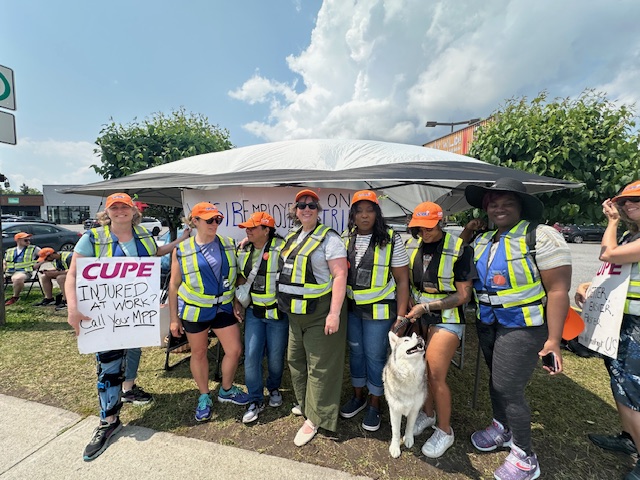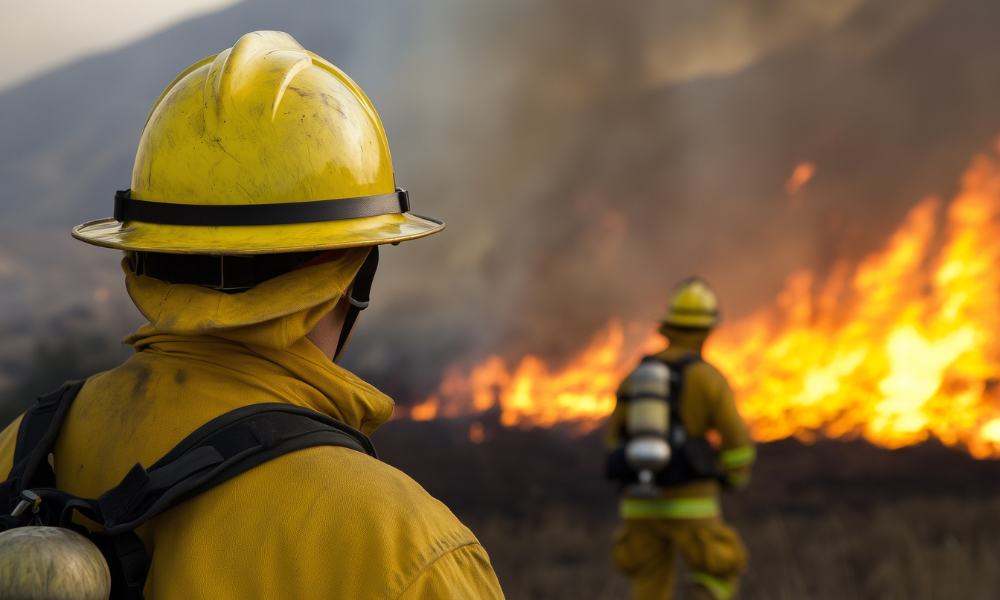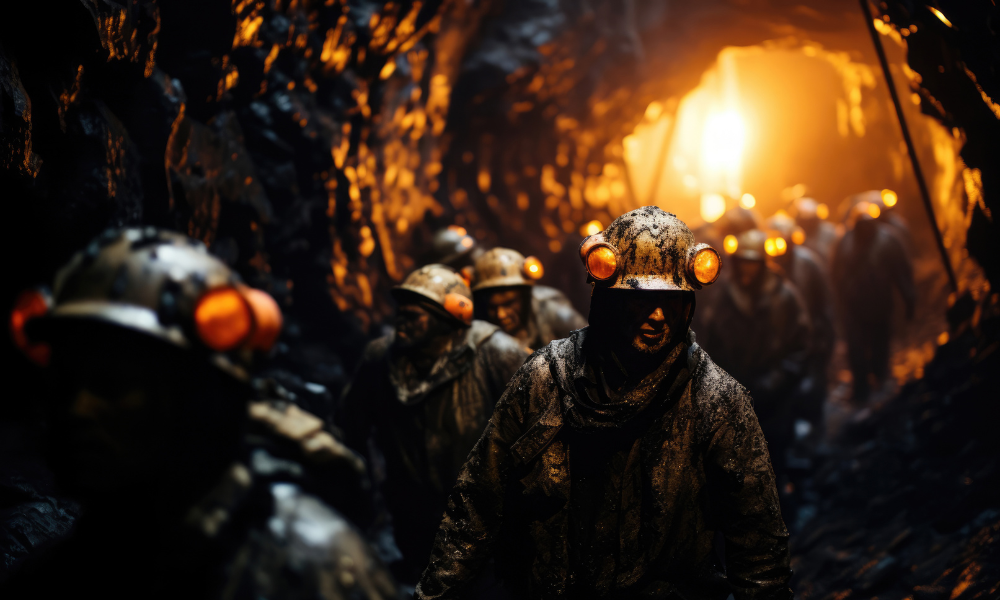CHARLESTON, W.Va. (AP) — Don Blankenship joined a small club of executives when he was indicted on federal charges in the 2010 West Virginia mine explosion that killed 29 people.
The former Massey Energy CEO is accused of conspiring to violate safety and health standards at Upper Big Branch Mine, site of the worst United States coal mining disaster in 40 years. The explosion and investigation led to the overhaul of the way the federal government oversees mine safety.
University of Virginia law professor Brandon L. Garrett has been tracking corporate prosecutions since 2001. In that span, of the 280 companies, including Massey, that escaped prosecution by agreeing to pay a fine and change their operations, just 26 of their CEOs have been charged, he said.
Blankenship, 64, who retired in December 2010, could face up to 31 years in prison if convicted. His retirement came six months before shareholders overwhelmingly approved Massey's $7.1 billion takeover by Alpha Natural Resources.
His attorney, William W. Taylor III, said that Blankenship "is entirely innocent of these charges. He will fight them and he will be acquitted.''
"Don Blankenship has been a tireless advocate for mine safety,'' the statement said. "His outspoken criticism of powerful bureaucrats has earned this indictment. He will not yield to their effort to silence him. He will not be intimidated.''
Garrett said CEOs are rarely prosecuted because "it can be hard to show that someone at the top knew what the people below were doing.''
But far from being a head-in-the sand boss, the indictment portrays Blankenship as a bullying micromanager who insisted on and received daily reports that should have told him his mines were unsafe. To illustrate this, the indictment quoted a series of strident memos Blankenship sent to subordinates.
For instance, in October 2009, when an executive requested approval to pay a contractor $750 to check and test the freeze-proofing systems at Upper Big Branch-group mine, he replied: "Nonsense Giving Money Away.''
In a February 2008 memo on work to meet ventilation standards, Blankenship wrote: "We'll worry about ventilation or other issues at an appropriate time. Now is not the time.''
And in an August 2008 note about controlling costs, he told several Massey mining-group presidents that "children could run these mines better than you all do.''
The indictment noted that this memo, like others, "made no reference to compliance with federal mine safety laws.''
Despite the abundance of details in the indictment, Garrett said prosecutors will not have to prove that Blankenship knew what his subordinates were doing at all times _ just that he helped formulate a criminal plan.
"It's a big deal to charge a CEO, so prosecutors will need witnesses on the inside who can describe what the practices and the culture of the company were like,'' Garett said. He said that testimony likely will come from some of the former Massey officials who have pleaded guilty and co-operated with the government.
In February 2013, a former longtime subordinate, David Hughart, testified that Blankenship ordered the widespread corporate practice of warning coal miners about surprise federal inspections. The federal Mine Safety and Health Administration said the root cause of the blast was Massey's "systematic, intentional and aggressive efforts'' to conceal life-threatening problems. MSHA said managers even maintained two sets of pre-shift inspection books — an accurate one for themselves, and a sanitized one for regulators.
Hughart pleaded guilty to a federal conspiracy charge and was sentenced to 3 1/2 years in prison. Also in the wide-ranging case, former Upper Big Branch superintendent Gary May and former Massey security chief Hughie Elbert Stover were sentenced to prison time.
News of Blankenship's indictment spread quickly in the mining community. Pam Napper, whose son, Josh Napper, was among the miners killed at Upper Big Branch, said she was elated.
"I think it's about time,'' Napper said. "He was a big part of this. He knew what was going on in that mine and continued to let it go. I hope he gets what he deserves. I am so excited. They aren't sad tears today. They're happy tears.''
Four investigations found that worn and broken cutting equipment created a spark that ignited accumulations of coal dust and methane gas. Broken and clogged water sprayers allowed what should have been a minor flare-up to become an inferno. Blankenship started a blog to push his assertion that the presence of natural gas in the mine, and not methane gas and excess coal dust, was at the root of the explosion.
The indictment notes that Massey was cited for safety violations 835 times from January 2008 until the 2010 explosion. An Associated Press investigation immediately after the blast found that Massey had racked up 600 MSHA violations at Upper Big Branch in less than a year-and-a-half leading up to the explosion.
Retiring U.S. Sen. Jay Rockefeller, D-W.Va., said Blankenship and the mines he once operated "treated miners and their safety with callousness and open disregard. As he goes to trial, he will be treated far fairer and with more dignity than he ever treated the miners he employed. And, frankly, it's more than he deserves.''
The former Massey Energy CEO is accused of conspiring to violate safety and health standards at Upper Big Branch Mine, site of the worst United States coal mining disaster in 40 years. The explosion and investigation led to the overhaul of the way the federal government oversees mine safety.
University of Virginia law professor Brandon L. Garrett has been tracking corporate prosecutions since 2001. In that span, of the 280 companies, including Massey, that escaped prosecution by agreeing to pay a fine and change their operations, just 26 of their CEOs have been charged, he said.
Blankenship, 64, who retired in December 2010, could face up to 31 years in prison if convicted. His retirement came six months before shareholders overwhelmingly approved Massey's $7.1 billion takeover by Alpha Natural Resources.
His attorney, William W. Taylor III, said that Blankenship "is entirely innocent of these charges. He will fight them and he will be acquitted.''
"Don Blankenship has been a tireless advocate for mine safety,'' the statement said. "His outspoken criticism of powerful bureaucrats has earned this indictment. He will not yield to their effort to silence him. He will not be intimidated.''
Garrett said CEOs are rarely prosecuted because "it can be hard to show that someone at the top knew what the people below were doing.''
But far from being a head-in-the sand boss, the indictment portrays Blankenship as a bullying micromanager who insisted on and received daily reports that should have told him his mines were unsafe. To illustrate this, the indictment quoted a series of strident memos Blankenship sent to subordinates.
For instance, in October 2009, when an executive requested approval to pay a contractor $750 to check and test the freeze-proofing systems at Upper Big Branch-group mine, he replied: "Nonsense Giving Money Away.''
In a February 2008 memo on work to meet ventilation standards, Blankenship wrote: "We'll worry about ventilation or other issues at an appropriate time. Now is not the time.''
And in an August 2008 note about controlling costs, he told several Massey mining-group presidents that "children could run these mines better than you all do.''
The indictment noted that this memo, like others, "made no reference to compliance with federal mine safety laws.''
Despite the abundance of details in the indictment, Garrett said prosecutors will not have to prove that Blankenship knew what his subordinates were doing at all times _ just that he helped formulate a criminal plan.
"It's a big deal to charge a CEO, so prosecutors will need witnesses on the inside who can describe what the practices and the culture of the company were like,'' Garett said. He said that testimony likely will come from some of the former Massey officials who have pleaded guilty and co-operated with the government.
In February 2013, a former longtime subordinate, David Hughart, testified that Blankenship ordered the widespread corporate practice of warning coal miners about surprise federal inspections. The federal Mine Safety and Health Administration said the root cause of the blast was Massey's "systematic, intentional and aggressive efforts'' to conceal life-threatening problems. MSHA said managers even maintained two sets of pre-shift inspection books — an accurate one for themselves, and a sanitized one for regulators.
Hughart pleaded guilty to a federal conspiracy charge and was sentenced to 3 1/2 years in prison. Also in the wide-ranging case, former Upper Big Branch superintendent Gary May and former Massey security chief Hughie Elbert Stover were sentenced to prison time.
News of Blankenship's indictment spread quickly in the mining community. Pam Napper, whose son, Josh Napper, was among the miners killed at Upper Big Branch, said she was elated.
"I think it's about time,'' Napper said. "He was a big part of this. He knew what was going on in that mine and continued to let it go. I hope he gets what he deserves. I am so excited. They aren't sad tears today. They're happy tears.''
Four investigations found that worn and broken cutting equipment created a spark that ignited accumulations of coal dust and methane gas. Broken and clogged water sprayers allowed what should have been a minor flare-up to become an inferno. Blankenship started a blog to push his assertion that the presence of natural gas in the mine, and not methane gas and excess coal dust, was at the root of the explosion.
The indictment notes that Massey was cited for safety violations 835 times from January 2008 until the 2010 explosion. An Associated Press investigation immediately after the blast found that Massey had racked up 600 MSHA violations at Upper Big Branch in less than a year-and-a-half leading up to the explosion.
Retiring U.S. Sen. Jay Rockefeller, D-W.Va., said Blankenship and the mines he once operated "treated miners and their safety with callousness and open disregard. As he goes to trial, he will be treated far fairer and with more dignity than he ever treated the miners he employed. And, frankly, it's more than he deserves.''





